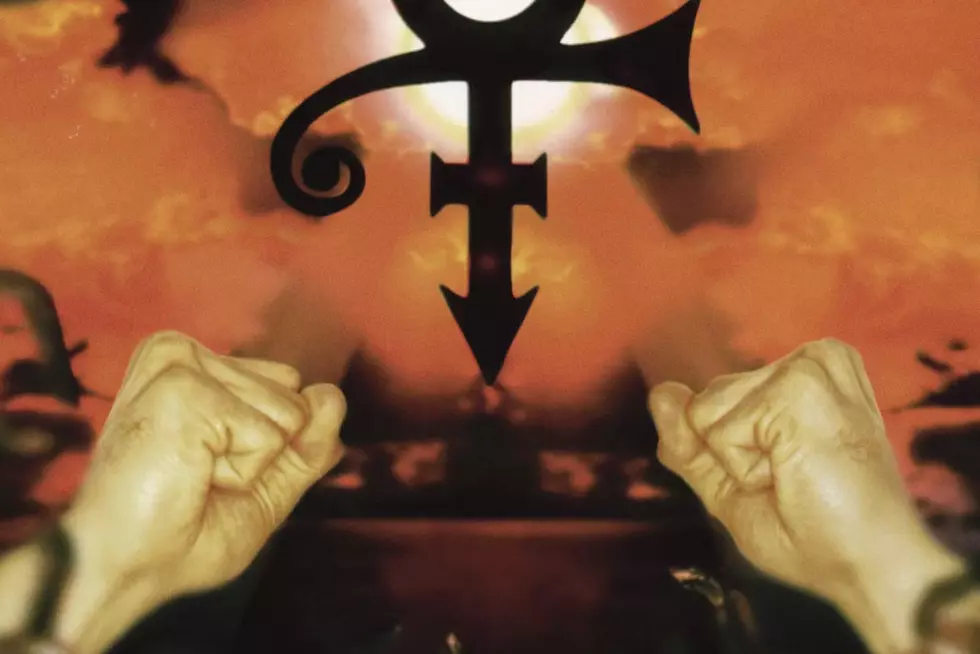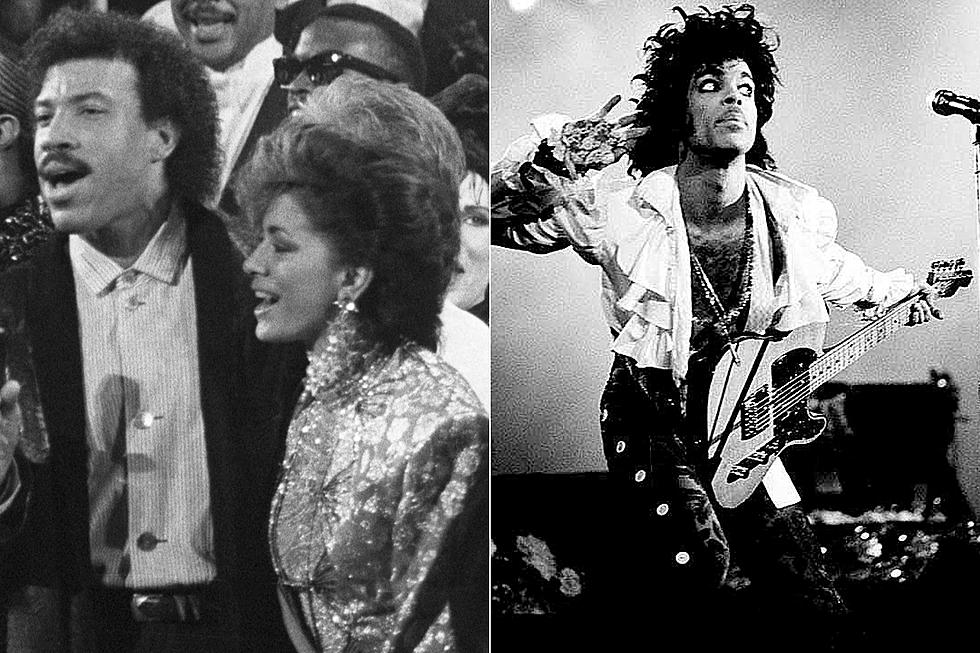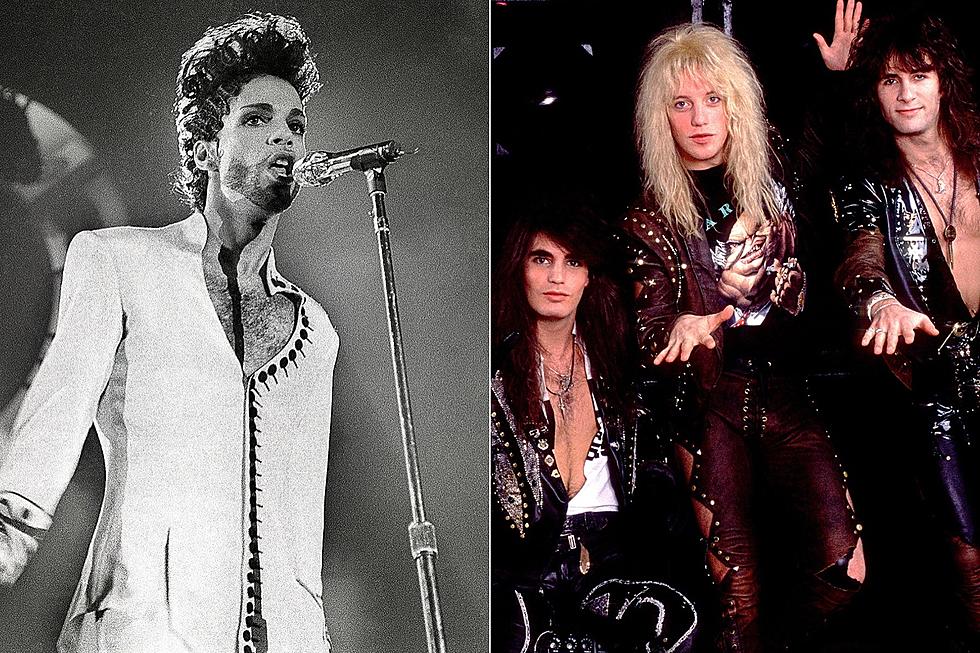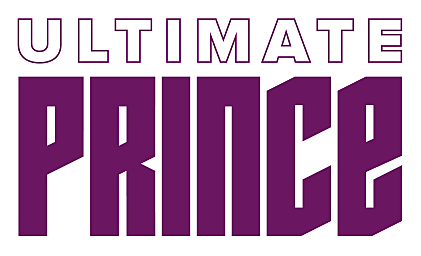
How Prince Finally Broke Free With the Sprawling ‘Emancipation’
Prince's Emancipation was about a lot of things: It was about getting married, and about having a baby. But mostly, this three-disc set was about freedom. Freedom from expectations, freedom from rules, freedom from his old label.
Released on Nov. 19, 1996, Emancipation heralded his long-sought-after divorce from Warner Bros., with whom he originally signed with in 1978. The title and cover image made pointed references to the end of a reported six-album, $100 million contract he'd signed in 1992. Prince chafed when Warner Bros. sought to maximize the deal by relying on standard promotion and marketing rules – most notably, putting out cheaper single-disc projects and spacing those albums out to give the label plenty of time to showcase potential singles.
"The music, for me, doesn't come on a schedule," Prince told the New York Times in 1996. "I don't know when it's going to come, and when it does, I want it out. Music was created to uplift the soul and to help people make the best of a bad situation. When you sit down to write something, there should be no guidelines. The main idea is not supposed to be, 'How many different ways can we sell it?' That's so far away from the true spirit of what music is. Music starts free, with just a spark of inspiration. When limits are set by another party that walks into the ball game afterward, that's fighting inspiration."
He worked at his own pace now – and that pace was furious. Emancipation was, in fact, the third Prince-related album of 1996, following the contract-requirement Chaos and Disorder and his soundtrack for Spike Lee's Girl 6. He'd ultimately describe the Warner Bros. contract as a "learning experience." Beyond their refusal to release music on his personal timeframe, they were also issuing music that he wanted to remain shelved.
"You don't know how much it hurts not owning your own material," Prince told Time in 1996. "When a record company goes ahead and does something with a song you wrote – let's say it turns up in a Nike commercial – it can make you angry for a week."
Warner Bros., meanwhile, said they only wanted Prince to adhere to terms of the contract. "Our dispute was not the content but the quantity," label exec Bob Merlis told USA Today in 1996. "He had artistic control. We didn't want to stifle his creative spirit."
Listen to Prince Perform 'Right Back Here In My Arms'
With Emancipation, however, Prince now oversaw every element of the process – from the distribution model right down to the length of the album: Each disc had 12 songs, and lasted exactly 60 minutes.
"This is what freedom sounds like,” Prince told USA Today. "When I saw light at the end of the tunnel, I made a beeline for it. This is the most exciting time of my life. There was nothing in the way when I recorded. Nobody looked over my shoulder. Nothing was remixed, censored, chopped down or edited."
Left to his own devices, and in a far different place in his life, Prince found new creative spaces. The songs were still sexy, to be sure, but they also delved into monogamy's deeper emotions. "My writing has changed immensely," Prince told Time in 1996. "Getting married has really got me focused. Songs come to me a lot easier. This album, I could almost see the whole thing done in my head. The common thread is love – even the angry songs I tried to resolve positively."
Emancipation ultimately included quite of bit of "sentimental stuff," Prince later admitted, telling Rolling Stone that the prospect of fatherhood had also changed him: "You'll definitely hear it in my music."
He struck a one-album deal with EMI to distribute and market Emancipation globally, but was adamant about keeping his masters. (Prince memorably described his new partners as simply "hired hands, like calling a florist to deliver flowers to my wife.") He also kept the cost down: This three-disc set sold for about $25, the same price point as a double album.
Listen to Prince Perform 'Sleep Around'
Best of all, Prince no longer had to deal with label executives who didn't understand the process – like the person who he says heard the gorgeous, but nearly seven-minute-long "Holy River" and asked: "Got a radio version?"
"I thank God every day that I never have to talk to that guy again," added Prince, who ultimately chose to provide a shorter version of the track for radio airplay. "They don't even realize what they're saying. It's all habit now. In the end, I was disappointed to see the things that mattered to Warner. When we got down to the wire, people started saying what they meant. They think of artists as children, not men and women capable of running their own affairs."
In this way, Emancipation was a statement of purpose for Prince, both as an artist and as a businessman. Despite its obvious heft – "People will say it's sprawling and it's all over the place,” he told the New York Times; "that's fine" – the album returned Prince to the Top 20 in both America and the U.K., going double platinum.
It also provided some of the most intimate insights into a famously private person. He told the Minneapolis Star-Tribune in 1996 that Mayte, a former dancer in the New Power Generation touring collective whom he married earlier that year, had "completed my soul. I see songs fully now. That's why they come out quickly." He traces their new love, and her early pregnancy, with a touching, surprisingly frank attention to detail.
He said his new freedom led directly to such openness. Still, Prince couldn't help getting in one more jab, even as he walked out the door on Warner Bros.
"I could have stayed longer and negotiated to get my masters back,” Prince told USA Today. “I don't own any Prince masters, but Warner gave me gold records. Ha! What's that worth? Ask a pawn shop."
Ranking Every Prince Album
More From Ultimate Prince









